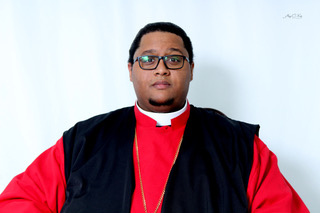By Dr. Brandon A. A. J. Davis, 3rd Episcopal District
During my days at Payne Theological Seminary, one of the most challenging classes I took was Ministerial Sex and Ethics. The famous and well-beloved Dr. William “Bill” Augman taught the course. As much as I loved all of Dr. Augman’s classes, I struggled with epoch proportions to reconcile the in-depth nature of the subject. Often, I found myself at a loss of words and overwhelmed with emotion from the content he taught and the conversations that he engaged in with full class participation.
It wasn’t until I took the time to read one of the recommended books that I began to grasp a modicum of understanding and felt I could comprehend the arduous nature of the subject matter. The book was Love Does No Harm: Sexual Ethics for the Best of Us by Dr. Marie Fortune. While the content of the book was designed to address ministerial sexual ethics; for me, it spoke to a broader audience of people who call themselves ambassadors of God’s love.
Too often, we fail to notice how comfortable we have become with our solitude that we have opted for a faith that is private and exclusive. Churches today have become entirely too comfortable with sharing their faith with their crowd and making public appearances when it is both profitable and necessary. Sadly, the words of Dr. Martin Luther King, Jr. still ring true with a lasting and impenetrable ping, “It is appalling that the most segregated hour of Christian America is eleven o’clock on Sunday morning.”
Now that we have been immersed in a battle for our health against the novel coronavirus, it is efficacious that we engage in social distancing, sheltering-in-place, and the Rubik’s cube that is technology as we acquaint ourselves with the virtual church. Nevertheless, in 1793, during the Philadelphia yellow fever epidemic, it was the members of Mother Bethel AME Church led by Bishop Richard Allen who mobilized black citizens of the city to change the narrative of racism and injustice. This was done during a time when white people were dying at an alarming rate.
In the article, “Bishop Richard Allen and Changing the Narrative,” Rayshawn Graves called black compassion when “black nurses and workers attended to the sick, buried the dead, handled infected clothes and linens—all while receiving little to no pay for their labors and placing their health at risk.” For years, health disparities in African American communities were the rock over which we stumbled. Fighting against social injustice was the hard place to which we were sequestered. Now we’re forced to fight against both while combating a novel virus called COVID-19. It used to be Jim Crow and today it’s the coronavirus.
For some people, it is hard to understand the health dangers associated with certain governors opting to reopen their states that include large numbers of African Americans. To “other” people, it is a proactive response toward a threatened economy. To people of color, the risk of exposure is the stick and the need for financial security is the carrot! As Methodists, it is in our DNA to fight against social injustice.
It was not just theological indifference that paved the way for the social protest that led to the founding of the AME Church. We share the Aldersgate’s experience in that our hearts were strangely warm with compassion and our dungeon of ridicule and hate was shaken. The chains of racial discrimination that held us captive flew off and we answered the call to serve.
The Apostle of Freedom, Bishop Allen said, “We who have been born and nurtured on this soil, we, whose habits, manners, and customs are the same in common with other Americans, can never consent to…be the bearers of the redress offered by that society to that much afflicted.” It is essential to understand that as African Americans, we choose to ingratiate ourselves in the fight for social justice. It is by nature our “raison d’ être,” our reason for being. To be Dickensian, “we forge the chains we wear in life.”
Nevertheless, in this season, as we fight for social justice, do not allow the necessity of returning to open society, and the risk of exposure to COVID-19, make your headstone and grave your rock and a hard place. Stay safe, stay healthy, and stay alive.





